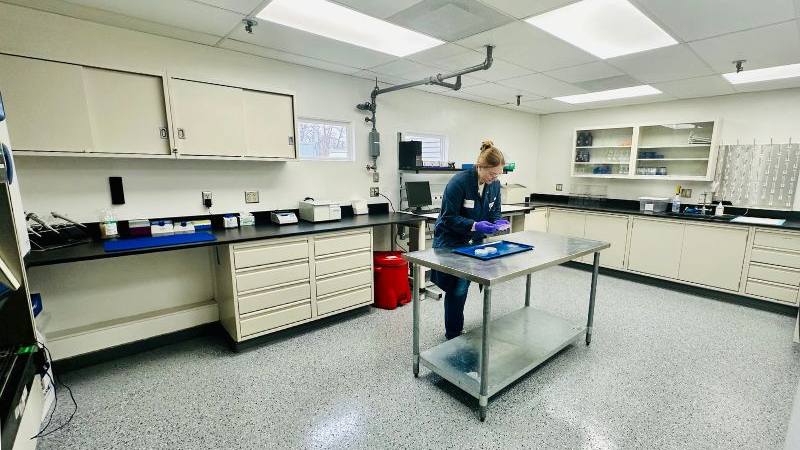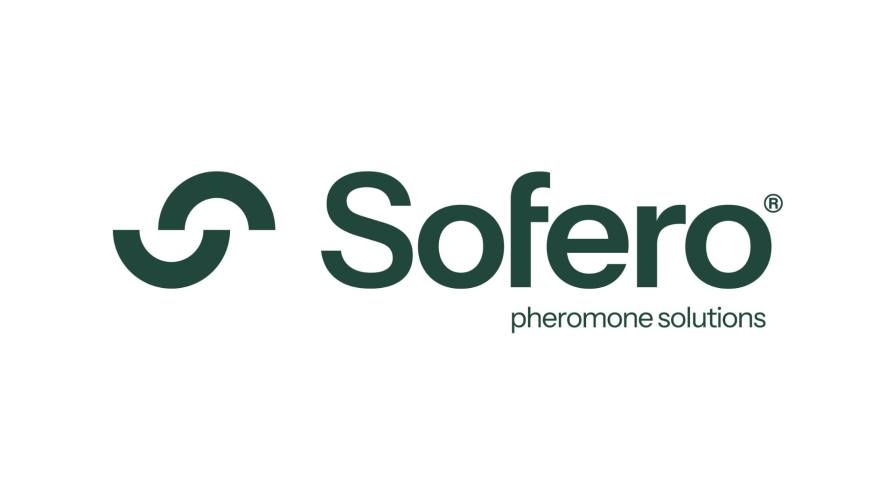Four Ways Valent Is Driving Sustainability in the Agrochemical Market with Biorationals

Valent U.SA. President Matt Plitt with CropLife Editor Lara Sowinski. Photo courtesy: Valent U.S.A.
Recently, our Agribusiness team spoke with Matt Plitt, President and CEO of Valent U.S.A., about advancing sustainability throughout the agrochemical market. He described how biorationals are playing a critical role in that effort, summarized in four key ways below:
1. Environmental and Shelf Friendly
As the biologicals sector advances, companies are developing products to protect soil and the environment while addressing issues with shelf stability. Biorationals could be the answer. While biologicals generally refer to products derived from living organisms, Plitt says that biorationals encompass “biologicals plus any synthetic biology, which would include compounds and new innovations that we’re building using synthetic chemistry that mirrors biological compounds.” As growers’ toolboxes continue to shrink, biorationals could be an answer that solves some challenges created by biologicals while also creating products good for the environment.
2. Integrated Pest Management
As growers face resistance and banning issues, they are getting creative to get their job done. Many are exploring IPM as a way to lower maximum residue levels (MRLs) while also ensuring pests are eliminated. Plitt says biorationals are an addition rather than a replacement to traditional agrochemicals. “We’re seeing a lot more biocontrol uses in specialty markets, which goes back to consumer demands, the organic market, including OMRI (Organic Materials Review Institute) certification driving some of that adoption. There are also growers who farm both organic and traditional production who are starting to utilize both biorationals and traditional chemistry together.”
3. Education
Plitt says he advocates for suppliers and manufacturers to educate retailers and growers about biorationals. “A lot of it has to do with science and training,” says Plitt. “As manufacturers, we have an obligation to make sure we equip ag retailers with the information and background behind biorationals. Ag retailers are independent, they’re neutral, and they’re making the best agronomic recommendations they can. That’s why it’s important that we provide the resources so they can make good, credible decisions on those recommendations to the farmer.”
4. Commitment to Sustainability
As food production companies invest millions into regenerative agriculture and the United Nations Food and Agriculture Organization calls for sustainable practices globally, Valent U.S.A. is dedicated to the advancement of biologicals and biorationals to meet sustainability goals. Its parent company, Sumitomo Chemical Co. Ltd., based in Tokyo, Japan, adheres to the philosophy of JIRI-RITA, emphasizing that “our business must benefit society at large, not just our own interests.” Plitt also says he sees Valent’s sustainability efforts being met through its commitment to training, education, and investment in emerging talent.






